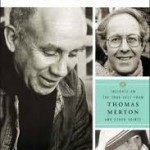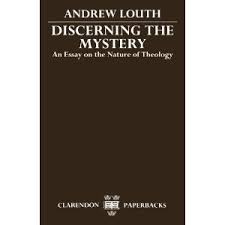 I recently asked Dr. Choon-Leong Seow, Henry Snyder Gehman Professor of Old Testament Language and Literature at Princeton Theological Seminary, if he would answer a few questions about his most recent commentary, Job 1-21: Interpretation and Commentary
I recently asked Dr. Choon-Leong Seow, Henry Snyder Gehman Professor of Old Testament Language and Literature at Princeton Theological Seminary, if he would answer a few questions about his most recent commentary, Job 1-21: Interpretation and Commentary. He’s just getting started, you know, so I thought I’d try to give hime some exposure and help him along.
If you’re not laughing, you don’t know who Seow is. And you’ll want to remedy that ASAP. Seow is one of my favorite Old Testament commentators because he has an uncommon ability to synthesize ancient Near Eastern background, linguistics, history of interpretation, and theology.
He has also guest lectured for me in the past, and my students always walked away changed in their outlook in some significant way and wondering how they got stuck with me and why I couldn’t be as smart. I failed the lot of them, of course, but I digress.
I have not yet read this first part of Seow’s commentary, but it is arriving in the mail shortly. I look forward to reading, if anything, the introduction. Getting a sense of what the book as a whole is “doing” has been a point of contention for as long as there has been a book of Job. Is it about suffering, as many think? Seow suggest below what the overall point is, and I am eager to see him flesh it out in writing.
Seow’s other publications include commentaries on Daniel and Ecclesiastes, and A Grammar for Biblical Hebrew. He is currently editing the massive multi-volume Encyclopedia of the Bible and Its Reception
.
What sets your commentary on Job apart from others?
I wanted to write a commentary that is fresh and rigorous enough to serve as a reference work and yet is accessible, even enjoyable to read. I do so with a keen sense that Job belongs to the best in world literature. So I keep in mind people of  various backgrounds, with or without religious convictions, coming to the commentary it to seek help in appreciating its literary beauty, especially its sublime poetry.
various backgrounds, with or without religious convictions, coming to the commentary it to seek help in appreciating its literary beauty, especially its sublime poetry.
At the same time, Job has had a long history of interpretation and reception among Jews, Christians , Muslims, and people who hold no confessional positions, and they do so not just in commentaries and theological works, but also in poems, fiction, drama, polemical works, music, the visual arts, music, film, and even dance. So I try and bring all these perspectives into conversation. This is what is unique about the commentary.
Do you have a favorite passage or section of the Job?
That’s a tough one because I have so many favorites. I love chapters 3 and 14 for their sheer poetic beauty. I love all the speeches of Job for the pathos and unrelenting honesty.
What are one or two common misunderstandings of the book of Job and how do you handle them differently?
The book is commonly thought to be about why people suffer, and that it is a theodicy. If it is either of these, it is not very successful. In the end there is no answer to the question of why there is innocent suffering. And the book is as much antitheodic (decrying the lack of divine justice) as it is theodicy (defending divine justice).
The liberation theologian Gustavo Gutierrez is right that it is not about these issues. Rather, to Gutierrez, it is about “God talk”—how we talk about God in the face of inexplicable human suffering. Yet the book is more that “God talk.” It is “God thought”—human interiority, what is in the human heart and unexpressed when we face a God who contradicts all our expectations.
 The book asks, in effect, if human beings worship God because God is good (what we expect and demand God to be), or if we worship God because God is God—utterly sovereign, utterly free.
The book asks, in effect, if human beings worship God because God is good (what we expect and demand God to be), or if we worship God because God is God—utterly sovereign, utterly free.
What was for you the most difficult aspect of writing this commentary?
The greatest challenge for any commentator of Job is the sheer amount of interpretation through the centuries. I wanted to be respectful of all contributions, but I did not want to exhaust the reader and user of the commentary with too many perspectives.
I did not want to “let a thousand flowers bloom,” and give the readers so many options that they are lost. Rather, I wanted to be responsible in representing different views, but I also want to be clear on how I read the text. I write to invite readers to explore the text with me as their guide.
















